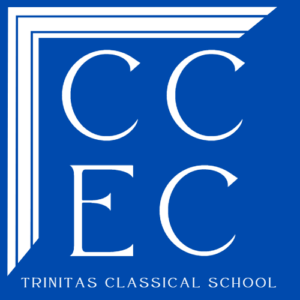 We continue our series on faith formation looking at three characteristics of families who successfully pass on their faith: 1) high standards combined with warmth, 2) strong intergenerational relationships, and 3) parents who are “all in.” * Our previous two posts focused on high standards and warmth. In this post, we’ll focus on what it means to be “all in,” saving intergenerational relationships for a later post. If we want to pass our faith on to our children, they should be able to see our own commitment to and delight in the ways of God.
We continue our series on faith formation looking at three characteristics of families who successfully pass on their faith: 1) high standards combined with warmth, 2) strong intergenerational relationships, and 3) parents who are “all in.” * Our previous two posts focused on high standards and warmth. In this post, we’ll focus on what it means to be “all in,” saving intergenerational relationships for a later post. If we want to pass our faith on to our children, they should be able to see our own commitment to and delight in the ways of God.
We tend to do this more naturally with things like careers and hobbies. Children often follow in their parents’ footsteps, ending up with similar interests and pursuits. In our family, four of our children explored STEM but eventually chose humanities majors in college (and the fifth is headed that direction). They just couldn’t get away from the passion for philosophy, religion, politics, history, and literature that seems to be in the air of our home. And, we know Trinitas parents whose own passion for the sciences has been passed on to their children. Whatever one’s passion—football, golf, choral music, hiking, woodworking, cooking—the interest and excitement we show and the energy, time, and even money we spend in pursuit of it will be evident to the young eyes watching us and learning from us. In very many cases, children grow to love what we show them we love. That’s not to say that children always follow in their parents’ footsteps. Sometimes they surprise and delight us and expand our worlds with interests and loves that are unique to them. Still, we should be aware of the influence our own interests, commitments, and loves have on them.
As a school, we hope to help you help your children cultivate God-honoring loves, and we try to provide various ways for them to see that when it comes to the Christian faith, you are “all in.” We are almost through the first quarter. Much has happened since the first day of school. New people have been met. New things have been learned. New routines and habits have been formed. One of our daily routines is all-school Morning Prayer. This time isn’t just a way to start our day; it’s a way to center our hearts and minds. What do we do in Morning Prayer? We sing and pray and meditate on God’s word. We’d like to remind you that parents are always welcome to stay and join their children in worship! And we would also like to encourage you to follow along at home as well. You can use this link to The St. James Daily Devotional Guide for information on subscribing to the same materials we use at school.
We also walk through the Psalms in Morning Prayer, starting with Psalm 1: “Blessed is the man who walks not in the counsel of the ungodly, nor stands in the path of sinners, nor sits in the seat of the scornful; but his delight is in the law of the Lord, and in His law he meditates day and night. He shall be like a tree planted by the rivers of water, that brings forth its fruit in its season, whose leaf also shall not wither; and whatever he does shall prosper” (vs.1–3). Your own delight in the law of the Lord, your meditating on it day and night as a family, will help to bring forth fruit whose leaf shall not wither.
We are grateful to have received a worship grant from the Calvin Institute for Christian Worship. Our focus this year is rooted in the desire to deepen our delight for God’s word and our love for God and neighbor as we worship together. This happens in more formal settings like Morning Prayer, of course, but also in the classroom to the lunchroom to the playground, offering all of ourselves and all of our moments to the Lord. Our board president recently sent an email reminding families of additional resources that are part of our Parent Partnership program. Much of what we do as a school is designed to show the children that we are “all in.” In the words of the Psalmist: “We will not hide them from their descendants; we will tell the next generation the praiseworthy deeds of the Lord, his power, and the wonders he has done. He decreed statutes for Jacob and established the law in Israel, which he commanded our ancestors to teach their children, so the next generation would know them, even the children yet to be born, and they in turn would tell their children. Then they would put their trust in God and would not forget his deeds but would keep his commands” (Psalm 78:4-7).
*Data about these characteristics comes from one of the largest studies of religion and family across generations discussed in Families and Faith: How Religion is Passed Down Across Generations by Vern Bengston, with Norella M. Putney and Susan Harris (Oxford University Press).
© ALP
